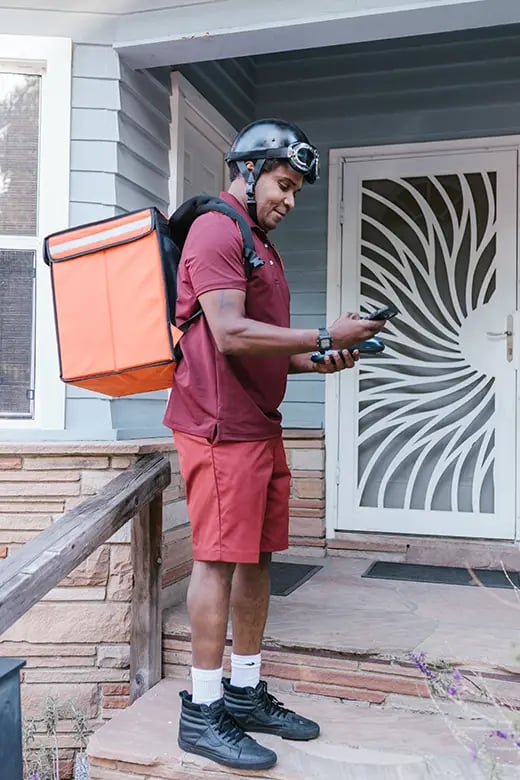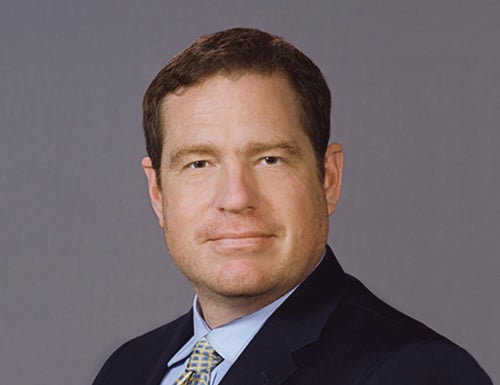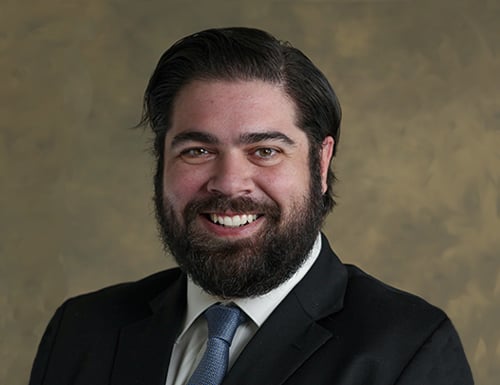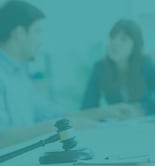PREMISES LIABILITY ATTORNEY
No out-of-pocket costs.
We do not get paid until you do.
Did You Know Property Owners Are Responsible for Injuries Sustained on Their Property?
From slips and falls to animal attacks, accidents occurring on personal and commercial property can happen at any time and can even result in death. Sometimes, these accidents are at no fault of the property owner. However, if the property owner's negligence in maintaining the premises caused your injury, you may be able to pursue a premises liability claim or lawsuit. In order to pursue a claim or lawsuit, you must prove:
- The property owner owed a duty of care, an obligation to ensure the safety or well-being of others, to the injured person
- The property owner did not ensure the safety or well-being of others
- The unsafe condition(s) caused the injury or injuries
- The injury or injuries caused resulted in damages such as medical bills, medical complications, or loss of wages
However, if you were not invited onto the property for a personal or business reason, the property owner can claim you were trespassing and, therefore, deny responsibility for your injuries. Unfortunately, in some circumstances, it can be difficult to prove the property owner was negligent. This is why it is wise to consult a premises liability attorney.

Our Premises Liability Experts
Can Assist You Throughout the Entire Claim Process
At Whitcomb Selinsky, PC, our premises liability lawyers, headed by Nathan J.D. Veldhuis from Virginia and Washington, DC, and Doug Fields from Colorado, can assist you throughout the entire claim process. As a reputable law firm, we will help establish the reasons why you were on the premises, including locating witnesses and gathering physical evidence. Once we have established you were invited onto the property for either business or personal reasons, we will help prove the property owner did not ensure your safety or well-being through their own negligence. Finally, we will collect any necessary information proving the accident caused you physical or emotional damage. Once we have gathered this information, we will represent you and negotiate toward a reasonable, out-of-court settlement or present your case in court.
There are several common types of accidents that can occur on someone’s property that can cause a personal injury. Some of the most common types of accidents are:
- Slips and falls (inside or outside of the premises, such as walkways, grocery stores, and parking lots)
- Elevator and escalator accidents
- Swimming pool accidents
- Animal attacks
- Fires and explosions
- Falling objects
Our Premises Liability Experts
Can Assist You Throughout the Entire Claim Process
At Whitcomb Selinsky, PC, our premises liability experts, headed by Nathan J.D. Veldhuis from Virginia and Washington, DC and Doug Fields from Colorado, can assist you throughout the entire claim process. We will help establish the reasons why you were on the premises including locating witnesses and gathering physical evidence. Once we have established you were invited onto the property for either business or personal reasons, we will help prove the property owner did not ensure your safety or well-being through their own negligence. Finally, we will collect any necessary information proving the accident caused you physical or emotional damage. Once we have gathered this information, we will represent you and negotiate toward a reasonable, out-of-court settlement, or present your case in court.
There are several common types of accidents that can occur on someone’s property that can cause a personal injury. Some of the most common types of accidents are:
- Slips and falls (inside or outside of the premises)
- Elevator and escalator accidents
- Swimming pool accidents
- Animal attacks
- Fires and explosions
- Falling objects
Frequently Asked Premise Liability Cases Questions
-
What is premises liability in law?
Premises liability is a legal concept that makes property owners or occupiers responsible for injuries that happen on their property because of unsafe conditions. The owner's duty to provide a safe environment depends on the type of visitor and the knowledge of the dangerous conditions. There are different categories of visitors, such as invitees (customers in a store), licensees (social guests), and trespassers. Generally, property owners owe the highest duty of care to invitees, followed by licensees and then trespassers.
-
What is the difference between premises liability, personal injury, and negligence?
Premises liability is a specific type of personal injury claim. A personal injury claim arises when someone (the defendant) breaches a duty of care to another person (the plaintiff), causing injury. This duty of care can be very broad and apply to many different situations. Premises liability narrows the focus to injuries that happen on property due to unsafe conditions.
Negligence is the underlying principle in both personal injury and premises liability cases. In personal injury cases, negligence simply means that someone fails to exercise reasonable care in a situation that can harm others. In premise liability cases, negligence refers specifically to the property owner's failure to take reasonable care to keep their property safe for visitors. -
What are the factors of premises liability?
A premises liability claim is triggered when an injury occurs due to a dangerous condition on the property. This condition can be something the owner knew about, should have known about, or failed to fix within a reasonable timeframe. Here's a breakdown of the key factors that come into play when determining liability in a premises liability case:
- The type of visitor: Property owners owe different duties of care to different types of visitors. Invitees (customers in a store) generally receive the highest duty of care, followed by licensees (social guests) and then trespassers.
- Dangerous condition: There must be a dangerous condition on the property that poses an unreasonable risk of harm to visitors. This could be a broken step, a malfunctioning elevator, a missing handrail, or a poorly lit area.
- Knowledge of the owner: The owner either knew about the dangerous condition, should have known about it through reasonable inspections, or failed to take steps to fix it within a reasonable time after it arose.
- Causation: The dangerous condition must be the direct cause of your injury. For example, if you slipped on a wet floor and broke your arm, the wet floor would likely be considered the cause of your injury.
- The reasonableness of precautions taken: If the owner took some steps to address the hazard, even if they were not entirely successful, it might impact the claim.
-
Who is responsible for a premises liability claim?
The property owner or occupier is generally responsible for the safety of their premises. However, liability can also extend to others who have control over the property or are aware of hazardous conditions but fail to address them. For instance, if a cleaning company creates a dangerous spill and you're injured, they could be held partially responsible.
-
What is a private property owner’s duty of reasonable care?
A private property owner's duty of reasonable care entails taking reasonable steps to ensure that their property is safe for visitors. This includes regularly inspecting the premises for hazards, repairing any dangerous conditions, and providing warnings for potential risks.
-
What is an attractive nuisance?
An attractive nuisance is a dangerous feature on a property that is particularly appealing to children, potentially luring them to trespass. In these cases, the property owner might have a higher duty of care to prevent foreseeable accidents, even if the child is trespassing. Examples of attractive nuisances include swimming pools, trampolines, and abandoned buildings.
-
What should I do if I’ve been injured on someone else's property?
If you're injured on someone else's property, here are some steps to take:
- Seek medical attention: This is the most important step. Get a medical evaluation to diagnose and treat your injuries.
- Document the scene: If possible, take photos of the dangerous condition that caused your injury. Also, try to get the names and contact information of any witnesses.
- Report the incident: Report the accident to the property owner or manager. Document the date and time of the report.
- Keep records: Keep all bills and receipts related to your medical treatment and any other expenses incurred due to the injury.
- Consult with an attorney: A premise liability attorney specializing in premises liability injuries can advise you of your rights and help you navigate the legal process.
-
When does a property owner have a duty to make their property safe?
Property owners have a duty to take reasonable measures to make their property safe for visitors depending on their classification:
-
Invitees: Property owners owe the highest duty of care to invitees, who are essentially guests on the property with the owner's permission (e.g., customers in a store). This includes taking steps to inspect the property for hazards and fix them or warn visitors about them.
-
Licensees: Licensees have permission to be on the property but are not there for the owner's benefit (e.g., social guests). The duty of care owed to licensees is less strict, but the owner generally cannot intentionally cause them harm.
-
Trespassers: Trespassers are generally not owed a duty of care, although there are exceptions, such as the attractive nuisance doctrine for children.
-
-
What are the typical damages awarded in a premises liability case?
The specific damages awarded in a premises liability case can vary depending on the severity of your injuries and other factors. However, some common types of damages include:
-
Medical expenses: This covers all costs associated with your medical treatment, including doctor visits, hospital stays, medications, and physical therapy.
-
Lost wages: If you miss work due to your injuries, you can recover compensation for lost wages.
-
Pain and suffering: This includes compensation for physical pain, emotional distress, and loss of enjoyment of life caused by your injury.
-
Property damage: If your property was damaged in the accident, you can also recover compensation for repairs or replacement.
-
-
Is there a time limit for filing a premises liability claim?
Yes, Colorado has a statute of limitations, which is a deadline for filing premises liability lawsuits. This deadline is two years from the date of your injury. Missing this deadline can bar your claim from being heard in court, so it's crucial to consult with a premise liability lawyer.
-
Can I sue for emotional distress after a premises liability accident?
Yes, you may be able to sue for emotional distress as part of a premises liability claim if you have suffered significant psychological harm because of the accident. Emotional distress damages may be awarded in addition to compensation for physical injuries and other losses.
-
Can I file a premises liability claim against a government entity?
Yes, you could file a premises liability claim against a government entity if your injury occurred on government-owned property due to negligence or hazardous conditions. However, there may be specific procedures and deadlines that must be followed when suing a government entity, so it's important to seek legal advice promptly.
-
Can I sue for damages if a loved one died due to a premises liability accident?
Yes, if a loved one died due to a premises liability accident, surviving family members may be able to file a wrongful death lawsuit. Wrongful death lawsuits are separate from premises liability claims and are typically brought by a spouse, child, or parent of the deceased. Damages in a wrongful death claim may include compensation for funeral expenses, loss of income, and loss of companionship, among other losses.
-
Why hire an attorney for a premises liability case?
Premises liability cases can be complex. A premise liability attorney from Whitcomb Selinsky, PC, can be beneficial in several ways:
- Investigation: They can investigate the accident scene, gather evidence, and interview witnesses to build a strong case.
- Knowledge of the law: Attorneys understand the intricacies of premises liability law and can ensure your case is filed correctly and within the time limits.
- Negotiation: They can negotiate with the property owner's insurance company to get you the compensation you deserve.
- Trial experience: If negotiations fail, an attorney can represent you in court and argue your case effectively.
Meet Your Premises Liability Legal Team

Nathan J.D. Veldhuis
Senior Litigation Attorney (Virginia Location)
Nathan has spent his entire career representing people and/or family members and friends of individuals who have been injured or killed through no fault of their own. Nathan has worked on cases from “fender benders” to major catastrophic events caused by the negligence of other people, corporations, or the state and/or federal government. His compassion for his clients gives Nathan a better understanding of those who have experienced, or are experiencing, difficulties due to their injuries.

Nathan McKibben
Attorney
Nathan specializes in civil litigation. He has a passion for helping clients navigate complicated aspects of litigation. Nathan works closely with clients to guide them through their cases, ensuring their understanding of the complex rules and laws.
Get Started in
3 EASY STEPS
 Discuss Your Claim
Discuss Your Claim  Explore Your Options
Explore Your Options  We Will Advocate For You
We Will Advocate For YouGet Started in
3 EASY STEPS



Request Your Free Consultation Today
Or Call (866) 433-4116
Locations
Colorado
300 Union Boulevard
Suite 200
Lakewood, CO 80228
(303)-647-1045 (local)
(303)-534-1958 (local)
© 2025 · All Rights Reserved · Whitcomb, Selinsky, PC






.png?width=150&height=97&name=Veterans%20Advocacy_Logo(Eagle).png)
